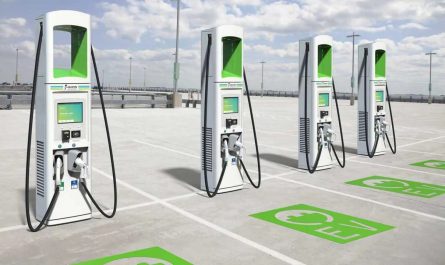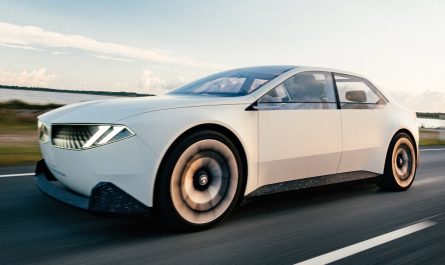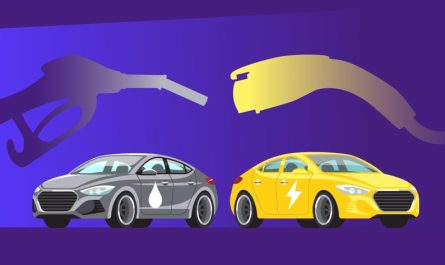Understanding Electric Vehicle (EV) Range
The term “electric vehicle (EV) range” refers to the distance an electric vehicle can travel on a full charge. This measurement is crucial for prospective EV buyers as it determines the vehicle’s practicality in their daily routines. EV range is typically assessed under controlled conditions, leading to the establishment of a theoretical range, which often differs from the real-world range encountered by consumers.
Several factors influence the effective range of an electric vehicle. One primary factor is battery capacity, usually measured in kilowatt-hours (kWh). A higher battery capacity allows for more energy storage, thus enhancing the potential range. Along with battery capacity, the vehicle’s weight significantly impacts range; heavier vehicles require more energy, reducing the distance travelled on a single charge. This aspect is particularly relevant for EVs with additional features or materials that may increase overall weight.
Aerodynamics is also critical in determining how far an electric vehicle can travel. Sleeker, more aerodynamic designs can reduce drag, allowing the car to use energy more efficiently, thus extending its range. Furthermore, driving conditions, terrain, speed, and climate significantly affect EV performance. For example, driving uphill or in cold temperatures drains the battery quicker than driving on flat terrain or in mild conditions.
Understanding the difference between theoretical and real-world ranges is essential for consumers. The theoretical range is determined through standardized testing procedures, while the real-world range considers various factors unique to individual driving experiences. As such, potential buyers must consider these factors to adequately select an electric vehicle that meets their driving needs and lifestyle preferences.
Factors Affecting Electric Vehicle Efficiency
The efficiency of electric vehicles (EVs) is influenced by various interconnected factors, each of which significantly determines overall performance and range. Understanding these factors can help EV owners optimize their driving habits for improved distance and energy consumption.
Firstly, driving habits are crucial in assessing an electric vehicle’s efficiency. Aggressive driving, characterized by rapid acceleration and hard braking, can lead to heightened energy expenditure. Conversely, smooth acceleration and gradual braking can enhance an EV’s performance by maximizing regenerative braking, which converts kinetic energy back into stored energy in the battery. Hence, adopting mindful driving techniques can lead to substantial improvements in range.
The usage of climate control systems also strongly affects energy consumption. Turning on air conditioning or heating can significantly reduce the distance an electric vehicle can cover on a single charge. Studies have shown that climate control can consume anywhere from 10% to 30% of battery power, depending on the outside temperature and distance travelled. EV users should find a balance between comfort and efficiency, employing heated seats in colder weather instead of cranking up the heater.
Additionally, the terrain can impact EV efficiency. Driving on hilly or mountainous roads may require more energy as vehicles must work harder to ascend inclines, draining the battery more quickly. Conversely, descents can allow for energy recovery if regenerative braking is used effectively. Moreover, speed plays a critical role; higher speeds generally lead to increased aerodynamic drag, further diminishing range. Thus, maintaining moderate speeds can enhance energy efficiency.
In conclusion, electric vehicle owners can significantly improve their efficiency and maximize battery range during real-world driving scenarios by considering driving habits, climate control usage, terrain, and speed.
Maximizing Your EV’s Range: Tips and Tricks
To enhance the range of your electric vehicle (EV) and ensure a more efficient experience, there are several strategies you can adopt. One of the foremost practices is to adhere to optimal charging habits. Charge your EV during off-peak hours when electricity costs are usually lower, and aim to keep the battery between 20% and 80% charged. Avoid depleting the battery completely, as this can degrade its overall lifespan. Upgrading to a Level 2 charger can also significantly reduce charging time, making maintaining an effective charge schedule easier.
Tire pressure is another critical factor directly influencing an electric vehicle’s efficiency. Under-inflated tyres can lead to increased rolling resistance, which diminishes range. Regularly check your tyre pressure and adjust as required, ideally every month. Maintaining your tyres at the manufacturer-recommended pressure can maximize the distance travelled on any charge.
Driving habits significantly affect the overall efficiency of your electric vehicle. Employing techniques such as smooth acceleration and deceleration can minimize energy consumption. Rapid acceleration and hard braking reduce range and increase wear on your vehicle’s components. If available, regenerative braking can also help recuperate some energy back into the battery while slowing down, thereby extending your EV’s driving range.
Additionally, utilizing features like eco-mode, which adjusts power settings for better range, can be beneficial. Keeping windows closed at higher speeds reduces aerodynamic drag, promoting efficient travel. Planning your routes to avoid heavy traffic can reduce energy consumption, as stop-and-go driving can harm an electric vehicle’s range.
By implementing these actionable tips, owners can significantly extend their electric vehicle’s range, enhancing their overall driving experience. Understanding how to manage various aspects of EV ownership will empower drivers to make informed decisions that ultimately prolong charging cycles and reduce anxiety related to travel distance.
Electric Vehicle (EV) Range
The Future of EV Range and Technology Advancements
The future of the electric vehicle (EV) range is poised for significant transformation, driven by ongoing advancements in various technologies. One of the primary catalysts for these changes is the development of battery technology. Researchers are actively exploring alternatives to lithium-ion batteries, such as solid-state batteries, which promise enhanced energy density, reduced charging times, and improved safety. These innovations could lead to longer-range capabilities, allowing electric vehicles to cover greater distances on a single charge without compromising performance.

Additionally, expanding charging infrastructure is critical to addressing range anxiety among consumers. As more charging stations are installed across urban and rural areas, the convenience of refuelling electric vehicles will increase significantly. Fast-charging options, like those offered by ultra-rapid chargers, are expected to become more common, and they can recharge a vehicle’s battery to a substantial percentage in minutes. Integration of these stations within public transport systems and strategic locations will further enhance accessibility, ultimately promoting wider EV adoption.
Another factor influencing the EV range is regulatory pressure. Many governments worldwide are enacting stricter emissions regulations that favour electric vehicles, incentivizing manufacturers to enhance the efficiency of their products. This can lead to increased production of lighter materials and more aerodynamic designs, which, in turn, can optimize the energy consumed during operation. Moreover, specific regulations may promote vehicle-to-grid (V2G) technology, enabling EVs to act as mobile power sources, potentially extending their effective range by contributing energy back to the grid during periods of high demand.
Beyond these developments, the emergence of autonomous driving technologies may also significantly enhance EV efficiency. By optimizing driving patterns, self-driving vehicles can dramatically reduce energy consumption, ensuring that electric cars can achieve longer ranges with more excellent reliability. These innovations position the electric vehicle market for a future where increased range and performance are not just aspirations but realities that meet the evolving demands of consumers.



